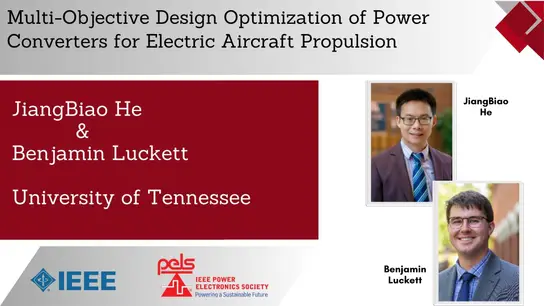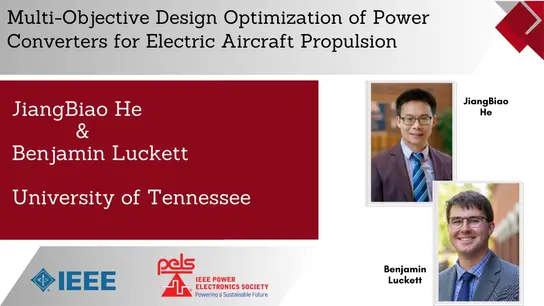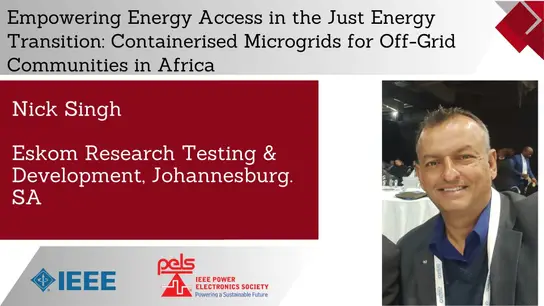-
Members: FreePELS
IEEE Members: $8.00
Non-members: $12.00Pages/Slides: 28
Abstract: Nowadays, with the depletion of the fossil fuels and increased in power demand drastically, the renewable energy-based power generation systems become the hot cake among the researchers and power generation utilities. Among, all the renewable energy sources wind and solar are the most prominent sources of energy, but due to the uncertain behaviour of these sources their grid integration is causing power quality problems. Therefore, the control of these sources is very crucial. In this respect, Power electronics-based utility interface is the most popular choice for the better control of these energy sources. Three phase Active Front-Ends or Pulse Width Modulated rectifiers are the most utilized power electronics interface in renewable power generation systems. The application area of these are not only limited to renewable energy systems, but they have also been utilized in the fields of active power filters, motor drives requiring regeneration operation, smart grid, and micro-grid etc. PWM rectifiers have numerous advantages over passive diode rectifiers such as bi-directional power flow, lesser Total Harmonic Distortion (THD) in the line current, nearly unity power factor operation and better regulation of dc-link voltage with a downsized capacitor. There are numerous control techniques proposed to control AFEs in the much better way. The most famous and classical approach utilized is Voltage Oriented Control (VOC). Alternatively, Direct Power Control (DPC) is a better substitute to the traditional VOC. In this webinar, a brief outline of DPC technique of AFE for power quality performance enhancement will be discussed.


